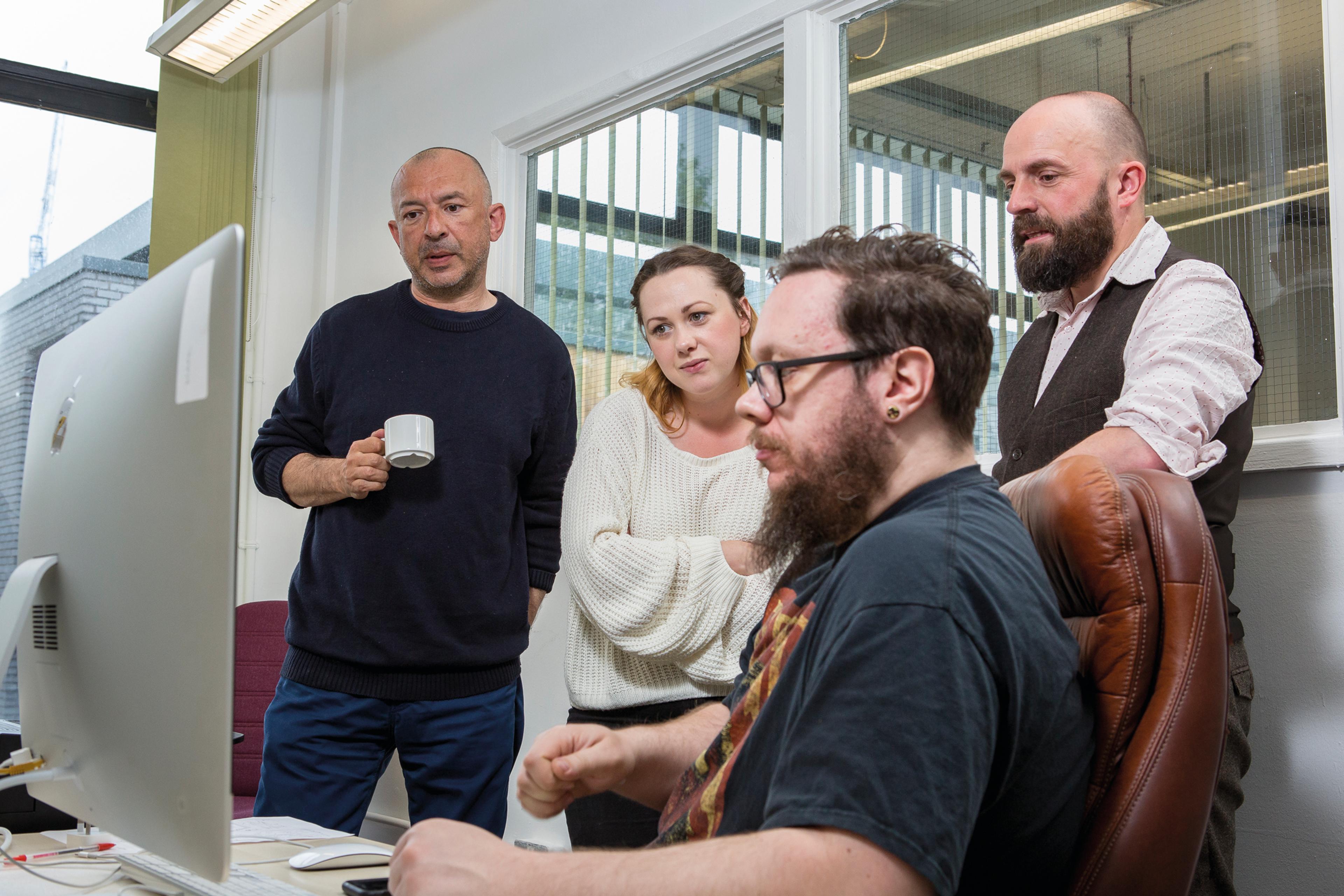A vendor for the day
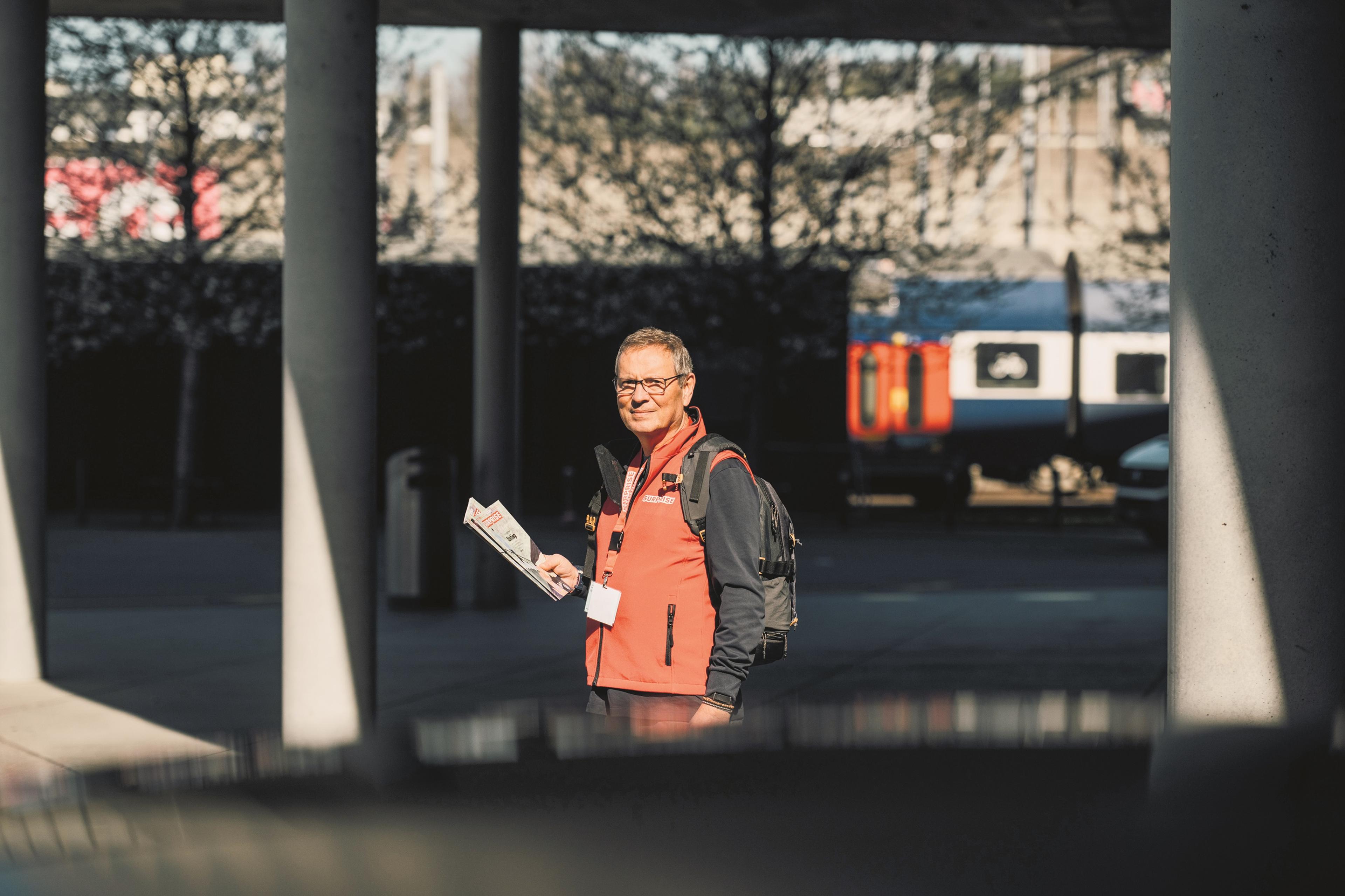
Photo by Samuel Schlach
By Anita Baumgartner, Charlotte Trinler and Lea Stuber
Translated from German via Translators Without Borders
- Street paper news
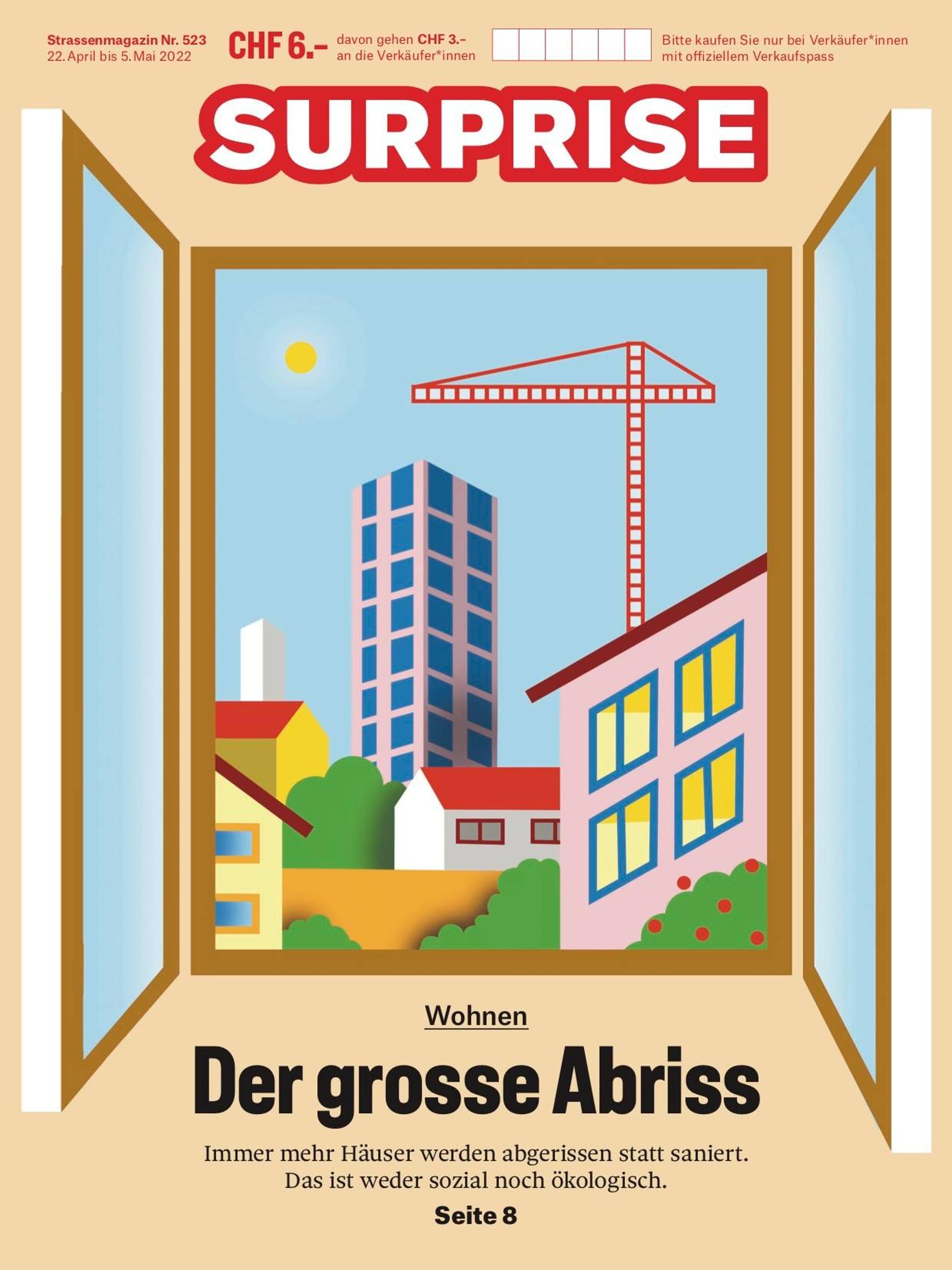
The feeling of pity
By Anita Baumgartner
The man, probably in his early thirties, hesitates as he walks past on the railway bridge in Zurich. Then he comes up to me. He obviously feels sorry for me and wants to give me some money. He’s not interested in the magazine.
I out myself as a board member of Surprise and tell him that I want to find out what it’s like to sell the magazine for myself. He asks if I’m from the city, and when I say no, he starts ranting about how wrong the social policy is that lets people fall into passivity. About how he didn’t have it easy growing up without parents either, but never wanted any help. About how people need to get out of their victim mentality and help themselves.
This is a great opportunity to explain to him that’s exactly what Surprise does: it gives people independent work with low barriers to entry that gets them out of isolation and maybe even out of a state of paralysis, so that they can build up contacts and regular customers over time and strengthen their ability to take action.
He nods, satisfied: “They build up their self-esteem.” He still doesn’t want to buy the magazine, but I'm happy with my little victory in changing his mind.
Before that, things had been more difficult than expected. I really feel the lack of regular customers. Time and again, people walk past and give me a friendly shout: “Sorry, I always have to buy the magazine from Urs/Liliane/Charly!” I’m pleased to hear how vendors in many places are building relationships like this.
It takes about an hour for a young man to buy the first magazine, giving me a little glimmer of happiness. Then, for a long time, it’s just lots of tourists rushing past with suitcases and mobile phones in their hands; people who make a show of looking away, shake their heads, or simply ignore me.
Heini Hassler, who normally sells magazines on this bridge, keeps me company at the beginning. He tells me about working for Surprise, about himself and his epilepsy, and his friendship with Ruedi Kälin, who used to sell magazines here and died almost two years ago. It is touching to see how small, stable communities are clearly forming among Surprise vendors as well. The issue that I’m selling also features a column by Heini, which I happily recommend to buyers.
Then I manage to sell five magazines in a row within 45 minutes – what a rush! I always explain to buyers that I’m from the board. I don’t want to just let them think that I am actually dependent on this income, and I am curious to see what they will say. When I tell them, they praise the quality of the magazine, spontaneously telling me how long they have been buying it, or that they once went on an impressive tour of the city and think that Surprise is a great idea.
This is followed by another almost two-hour lull. Some people hurriedly give me money because they feel sorry for me, without giving me a chance to explain myself. Not a good feeling.
Finally, the strangest encounter of the day: a man in his mid-thirties “feels triggered by me” because I'm standing there on the bridge “as a woman”. Women just have too many rights nowadays; things used to be better. When I ask him repeatedly what rights he thinks I shouldn’t have, he dodges the question. It’s hard to say, he couldn’t tell me exactly, and anyway, I’m a bit older. But things are just not good anymore these days.
After he also feels “triggered by the red of my gilet” because it reminds him of the Turkish flag, he moves on. I shout after him that the Swiss flag is also red, and am left baffled. How would I have felt if I didn’t understand the language, had a different skin colour, was younger or less self-confident?
The result after four and a half hours: I sold eight magazines, plus two to friends who stopped by. Not a great hourly wage, but it’s a start. I can easily imagine that you could build up a regular customer base over time, and appreciate the contacts, independence, and freedom. Pity, on the other hand, is not pleasant. I realise all the more how lovely it is when people are just friendly and have a heart.
The question of how we work
By Charlotte Trinler
09:37: Finally on the tram! Away from the hustle and bustle. A little peace and quiet does you good!
10:10: I’ve got to my spot. The Co-op store here is very small and out of the way. I first went straight to the store manager and she told me very clearly where to stand, next to the rubbish bin and the ashtray. It's a lovely day, but very cold. And very quiet. The birds are chirping, the trees are in full bloom... all very meditative. I had a hectic day yesterday and this morning was stressful too. It’s great just to have a few hours of peace and quiet. I can really wind down here.
10:15: If only it weren’t for that typical supermarket smell. I have to push forward a little. It’s interesting how people deliberately look away. What’s going on inside their heads? Are they in a hurry? Seems unlikely in this tranquil residential neighbourhood. Shame? Denial?
10:30: I’ve sold my first copy! I had just been lost in thought. An elderly lady came straight up to me – she probably buys Surprise regularly.
11:00: There really isn’t a lot going on here. The shop isn’t very busy and the average age is high. One person tells me he’s retired, so he can’t buy a magazine.
11:10: I watch the few people passing by. I’m suddenly struck by how selfish people are. Some park their car in the middle of the street, leave the engine running, and then quickly go do their shopping. That actually upsets me. Me, myself, and I; they only focus on themselves. A poor starting point for dealing with people affected by poverty.
11:40: This also applies to the way that they do their shopping and dispose of rubbish. Some people bring their household waste with them and throw it in the public rubbish bin. Then they do their shopping.
12:20: It’s going quite well here now. Nice and quiet. No people.
12:55: People going for a walk and a few shop customers. I've been noticing for a while that people avoid me, for example crossing to the opposite side of the road. I hardly ever interact with men; they really go out of their way to avoid me.
13:00: But some people are also interested. They seem annoyed that I speak their language, Basel German. Maybe they are wondering how I “ended up” here?
13:10: The magazine I’m selling is called Abstieg and it’s about the working poor. Maybe people associate that directly with me. The behaviour, the looks... There’s definitely something going on in people’s heads. I guess some people think: “That’s one of them.” I would be very interested to know what people are really thinking. Why they act like this. Why they avoid me.
13:15: I think some people are a bit surprised by me because I don’t look like a typical Surprise vendor to them. But almost nobody asks about my background. I get a lot of looks, but hardly any questions.
13:20: There are also some nice sides to standing here. Maybe with more time, you could build really good relationships here, find common ground. I’d like to get to know the people here better and maybe fish for information a bit.
13:45: It’s gradually getting tiring. I admire the street vendors who are able to stand in one place for so long. My legs and back ache.
13:55: I pack up my things. I managed to sell four copies. I also got a few tips, which I hadn’t expected. I spoke to a few people – those five I interacted with – and they were all very nice. Overall, a great experience!
The day after: the remaining magazines are still sitting on the living room table with the Surprise tabard, and every time I walk past them, looking at them triggers something in me. Yesterday is still running through my mind, giving me food for thought.
I get the impression that we really do have a societal problem. That we don’t talk to each other. What stops us from reaching out to people we see as on the so-called margins? Why do so many people shun them? Lots of people don’t understand when someone is not doing well. It’s not just with Surprise that I notice this. I feel like it’s symptomatic of our times. I also notice it a great deal in my job. I support teams undergoing change processes and am often struck by the lack of empathy.
The thought plays on my mind, along with the question of what could be done about it. I think it’s important for us to tackle this as a society. And I hope I’ll also find a way to get more actively involved in the social sphere myself.
“I earned 34 Frans in three hours”
By Lea Stuber
Surprise: Fredi Lüthin, what was strongest: the feeling of being exposed or of being invisible?
Fredi Lüthin: I felt more invisible. This was also due to the location: there were very few people in front of the small Co-op on the university campus, so not very many people could see me.
How did you deal with it?
I said hello to everyone who came by and watched what happened. Interestingly, eight out of 10 people avoided making eye contact. But I do that myself sometimes: for example, when I pass people collecting money for charity, I hardly ever look at them, because I don’t want to get dragged into a conversation.
Did they at least say hello back?
Yes, they were all very nice, nearly everyone said hello back. But lots of them indicated that they had no time.
How did that make you feel?
You get used to it; I didn't take it personally. Being ignored is just part of the job.
Did you feel ostracised?
No, not exactly. People can see I’m trying to sell something, and if it’s not what they want, they’re just not interested. It doesn’t matter how nice I am; it has nothing to do with me as a person. In the end, you’re selling something and not everyone is familiar with your product. But one thing is for sure: it’s not enough just to stand there and hold out the magazine. You really have to put some work in if you want to sell magazines.
Such as?
You have to go up to people: “Have you got the new Surprise yet? Are you familiar with Surprise?” It takes a bit of effort every time. Two or three customers came straight up to me and bought the magazine. They were already familiar with Surprise.
What sometimes also happened was that I said hello before they went into the Coop, and then after doing their shopping, they came up to me and said, “I have time now, I’ll buy the magazine.” One of them said he always buys the magazine from Tinu in Bern – which made me happy for Tinu.
It was also nice when a woman, who didn’t seem to have much money herself, simply put a 10 Franc note in my hand, took the magazine, and wished me all the best. There’s a real sense of solidarity at times. That outweighs being ignored.
My favourite experience was when I was sitting on a bench to take a short break, and a father and his daughter approached me. They asked me if I wanted to talk about faith and God. We talked about Surprise instead, and in the end, I sold them a magazine.
Not all Surprise vendors speak dialect like you and can explain the idea behind the street magazine to passers-by.
Yeah, I definitely had a big advantage there. A young woman, presumably a student at the university, stopped when I approached her. She wasn’t familiar with Surprise; I explained the concept to her, and then she bought a magazine from me.
How many magazines did you sell in total?
Only eight. Interestingly, three people paid with Twint. Two or three gave me 10 Francs. I earned a total of 34 Francs in three hours, which is not a lot.
Do you feel more like you were watching people, or like they were watching you?
I didn’t feel like I was being watched like crazy. On the contrary: you have to fight for attention a bit.
You may also be interested in...
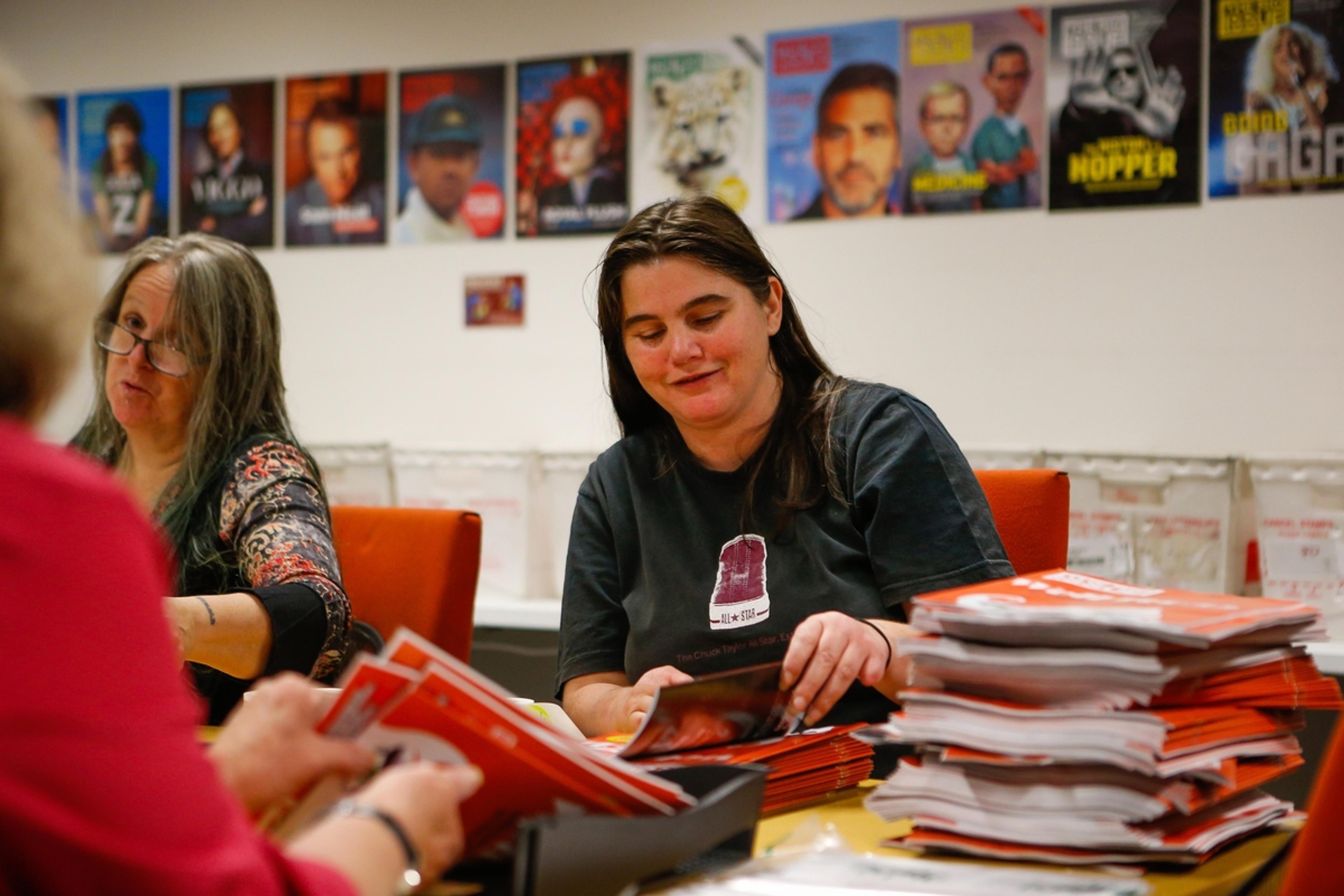
Q&A: How The Big Issue Australia is empowering women through enterprise
Read more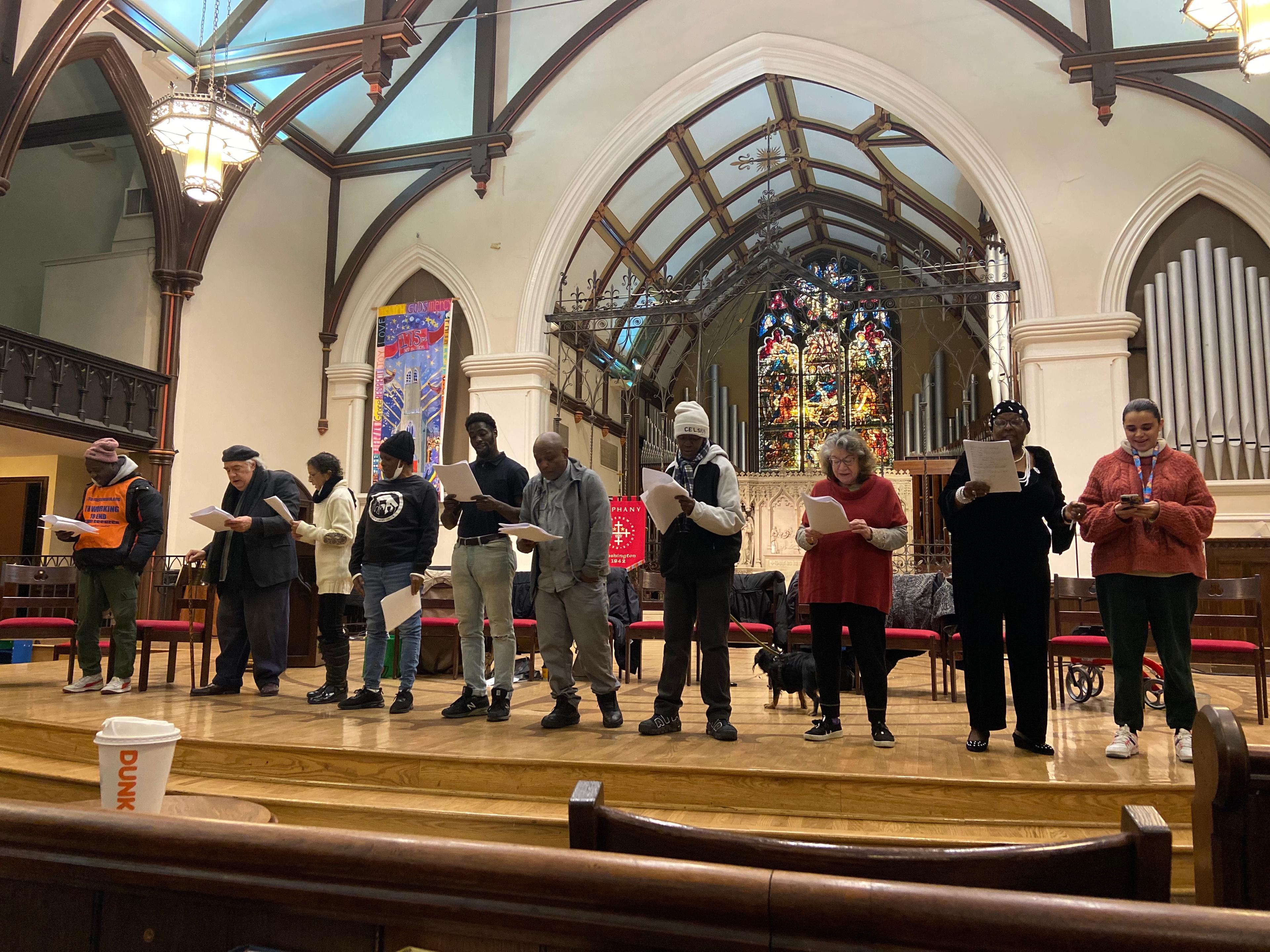
Street Sense Media vendors stage play exploring solutions to homelessness
Read more